
Sascha Pare
Sascha is a U.K.-based staff writer at Live Science. She holds a bachelor’s degree in biology from the University of Southampton in England and a master’s degree in science communication from Imperial College London. Her work has appeared in The Guardian and the health website Zoe. Besides writing, she enjoys playing tennis, bread-making and browsing second-hand shops for hidden gems.
Latest articles by Sascha Pare
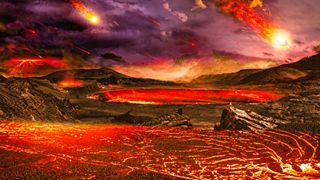
Scientists discover first direct evidence that slivers of 'proto-Earth' may survive today
By Sascha Pare published
In a first, researchers have discovered fragments of Earth's precursor that contain distinctive chemical fingerprints in ancient rocks from Greenland, Canada and Hawaii.
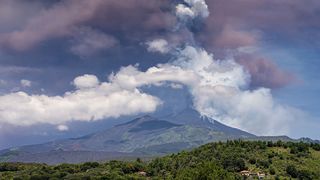
Scientists discover new way to predict next Mount Etna eruption
By Sascha Pare published
Researchers analyzed changes over time in the ratio of small earthquakes to bigger ones beneath Mount Etna and found a strong correlation with the volcano's activity over the past 20 years.
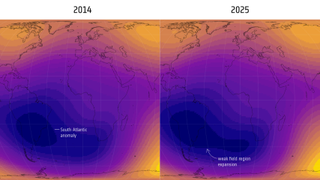
A massive weak spot in Earth's magnetic field is growing, scientists discover
By Sascha Pare published
The South Atlantic Anomaly, a huge weak spot in the geomagnetic field off South America, has expanded and sprouted a lobe in the direction of Africa over the past decade.
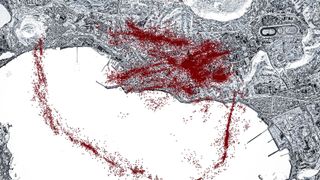
AI reveals hidden 'ring fault' that is unleashing earthquakes at Italy's Campi Flegrei volcano
By Sascha Pare published
A new AI tool reveals that Campi Flegrei experienced more than 54,000 earthquakes between 2022 and 2025. By mapping these events, researchers discovered a huge, crisp, ring-shaped fault.
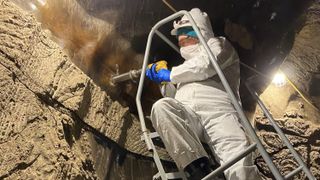
Scientists 'reawaken' ancient microbes from permafrost — and discover they start churning out CO2 soon after
By Sascha Pare published
Researchers incubated permafrost samples from Alaska at different temperatures and found that microbes from the last ice age can reactivate and resume breaking down carbon.
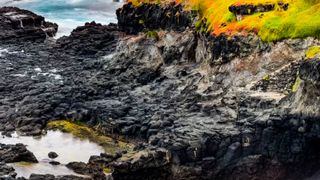
Hidden, supercharged 'thermostat' may cause Earth to overcorrect for climate change
By Sascha Pare published
Rising levels of CO2 in the atmosphere may trigger a series of geological and biological processes that could ensure the next ice age arrives on time instead of being delayed, researchers say.
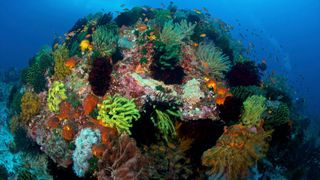
Coral Triangle: The giant hidden 'Amazon' beneath the sea that appears somewhat resilient to climate change
By Sascha Pare published
The Coral Triangle is an extremely biodiverse patch of ocean around the Philippines and Papua New Guinea. Its relatively murky waters appear to shield it against climate change — for now.
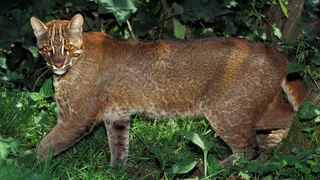
Asian golden cat: The 'feline of many costumes' that plucks birds before eating them
By Sascha Pare published
The Asian golden cat is an elusive creature endemic to South and Southeast Asia. It is known to take down prey much larger than itself, including buffalo calves, baby deer and small muntjacs.
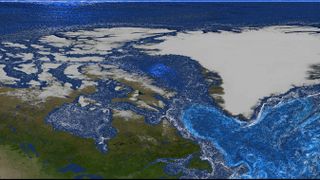
Massive system of rotating ocean currents in the North Atlantic is behaving strangely — and it may be reaching a tipping point
By Sascha Pare published
An analysis of clam shells suggests the North Atlantic subpolar gyre has had two periods of destabilization over the past 150 years: one around 1920 and the other from 1950 through present.
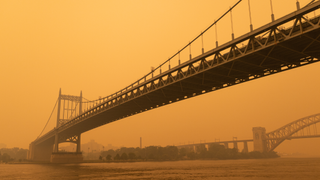
Wildfire-smoke-related deaths in the US could climb to 70,000 per year by 2050 due to climate change, study finds
By Sascha Pare published
The number of deaths from exposure to wildfire smoke in the U.S. could rise by more than 70% in the next 25 years. The human and economic costs involved would be astronomical, researchers say.
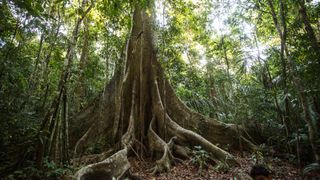
Amazon rainforest trees are resisting climate change by getting fatter from CO2 in the atmosphere
By Sascha Pare published
Tree trunks in the Amazon are getting 3.3% thicker every decade as the plants absorb extra carbon dioxide, suggesting they are more resilient to global warming than previously thought.
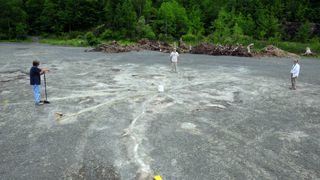
Cairo Fossil Forest: The oldest forest in North America with 385 million-year-old trees
By Sascha Pare published
The Cairo Fossil Forest is the second oldest in the world. These forests mark a turning point in Earth's history because they changed the composition of the atmosphere, scientists say.

95 million-year-old 'tiny, tiny skull' from never-before-seen crocodile-like creature discovered in Montana
By Sascha Pare published
Researchers have described a whole new family of extinct crocodyliforms based on the fossilized remains of a single teenage croc named Elton discovered in the Blackleaf Formation.
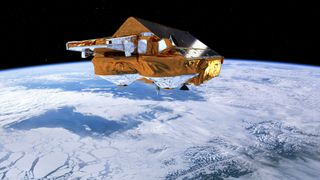
Scientists discover 85 'active' lakes buried beneath Antarctica's ice
By Sascha Pare published
Data from ESA's Cryosat-2 satellite has revealed 85 never-before-seen, active subglacial lakes buried beneath Antarctica's ice — 58% more than were previously known.

'This needs to happen fast': Scientists race to cryopreserve a critically endangered tree before it goes extinct
By Sascha Pare published
Less than 400 angle-stemmed myrtle specimens remain in the wild in Australia. Scientists are working on ways to preserve the species so that we can bring it back at any point if it dies out.

2,200-year-old gold coin depicting ancient Egyptian queen discovered in Jerusalem
By Sascha Pare published
Archaeologists in Jerusalem have discovered a 2,270-year-old gold coin with Queen Berenice II of Egypt and the inscription "of the Queen," suggesting she was a powerful and influential monarch.
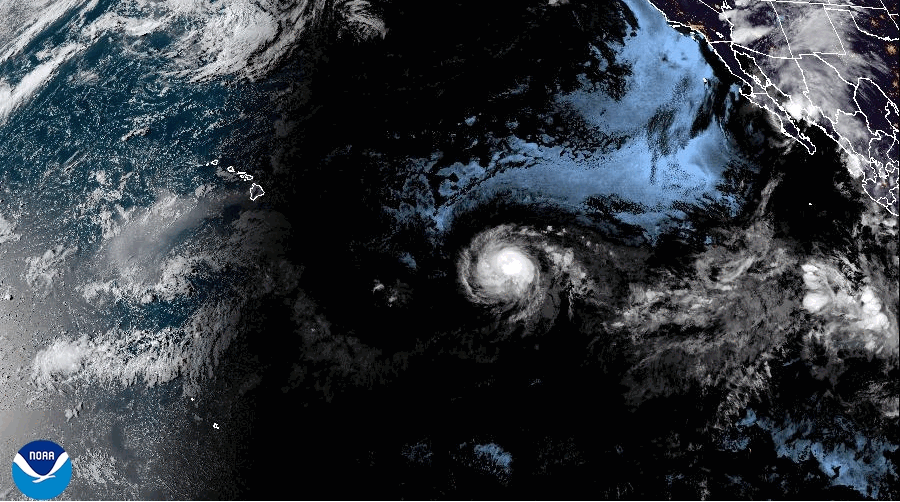
Category 4 Hurricane Kiko is heading for Hawaii — but it will weaken before it gets there, forecasters say
By Sascha Pare published
Weather predictions show that Hurricane Kiko could hit Hawaii next week, but forecasters say the Category 4 storm will weaken to a tropical storm or low-category hurricane this weekend.
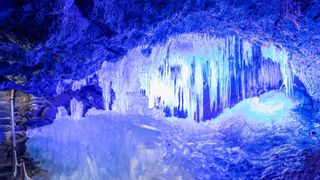
Narusawa Ice Cave: The lava tube brimming with 10-foot-high ice pillars at the base of Mount Fuji
By Sascha Pare published
The Narusawa Ice Cave is a natural lava tunnel that formed during a violent eruption of Mount Fuji in A.D. 864. Every winter, the cave grows giant ice pillars due to its freezing temperatures.
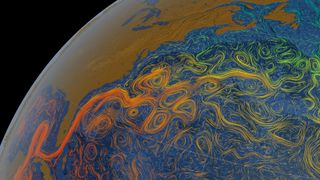
Key Atlantic current could start collapsing as early as 2055, new study finds
By Sascha Pare published
The Atlantic Meridional Overturning Circulation brings heat to the Northern Hemisphere and regulates the climate globally, but research suggests it could weaken significantly in the coming decades.
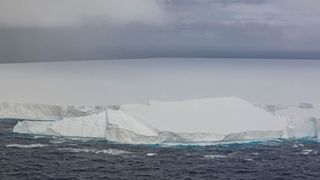
40-year-old 'queen of icebergs' A23a is no longer world's biggest after losing several 'very large chunks' since May
By Sascha Pare published
A giant iceberg called A23a that broke off Antarctica in 1986 is now disintegrating near South Georgia Island in the South Atlantic Ocean, scientists say.
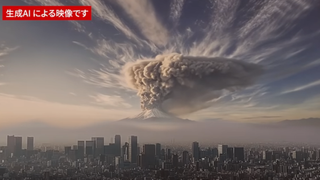
See what would happen to Tokyo if Mount Fuji erupted 'without any warning' in new AI-generated video
By Sascha Pare published
Japanese government officials have released an AI video to show just how devastating an eruption at Mount Fuji could be. But don't worry, the dormant volcano is currently not at risk of blowing.
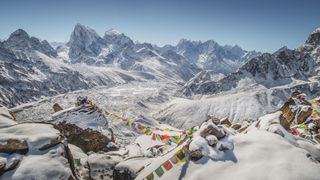
The geology that holds up the Himalayas is not what we thought, scientists discover
By Sascha Pare published
A 100-year-old theory explaining how Asia can carry the huge weight of the Himalayas and Tibetan Plateau needs to be rewritten, a new study suggests.
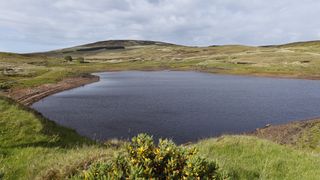
Loughareema: The 'vanishing lake' in Northern Ireland that mysteriously drains and refills itself within hours
By Sascha Pare published
The Vanishing Lake in Northern Ireland's County Antrim can be full in the morning and empty a few hours later, thanks to an underground drainage system that scientists still don't fully grasp.
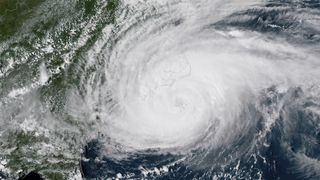
'Now is the time': Hurricane category 6 could be introduced under new storm severity scale
By Sascha Pare published
The current hurricane classification does not consider storm surge and rainfall risks, which cause almost 80% of hurricane-related deaths. A new scale could help people better prepare for storms.

Chinese scientists create multicolored glow-in-the-dark succulents that recharge in sunlight
By Sascha Pare published
Researchers injected "afterglow" phosphor particles into succulents to create the world's first multicolored glow-in-the-dark plants, featuring blue, green, red and blue-violet luminescence.
Get the world’s most fascinating discoveries delivered straight to your inbox.
